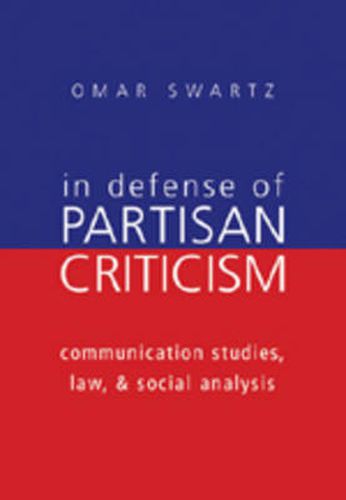Readings Newsletter
Become a Readings Member to make your shopping experience even easier.
Sign in or sign up for free!
You’re not far away from qualifying for FREE standard shipping within Australia
You’ve qualified for FREE standard shipping within Australia
The cart is loading…






In Defense of Partisan Criticism is a far-reaching exploration of the legal, philosophical, and rhetorical basis for understanding social justice in the United States. Through a thoughtful investigation of key political, social, and legal events in the history of the United States, Omar Swartz develops a compelling argument for engaged political scholarship by American academics, and offers readers a critical understanding of the place of race and class in American cultural history. Central to this understanding is an awareness of the communication imagination - the power of citizens to name the constraints placed upon them by U.S. political and legal institutions and to counter those constraints with narratives constructing a more socially just society based upon a wider sense of human identification and partisan engagement than is currently practiced in the normative U.S. public sphere.
$9.00 standard shipping within Australia
FREE standard shipping within Australia for orders over $100.00
Express & International shipping calculated at checkout
In Defense of Partisan Criticism is a far-reaching exploration of the legal, philosophical, and rhetorical basis for understanding social justice in the United States. Through a thoughtful investigation of key political, social, and legal events in the history of the United States, Omar Swartz develops a compelling argument for engaged political scholarship by American academics, and offers readers a critical understanding of the place of race and class in American cultural history. Central to this understanding is an awareness of the communication imagination - the power of citizens to name the constraints placed upon them by U.S. political and legal institutions and to counter those constraints with narratives constructing a more socially just society based upon a wider sense of human identification and partisan engagement than is currently practiced in the normative U.S. public sphere.